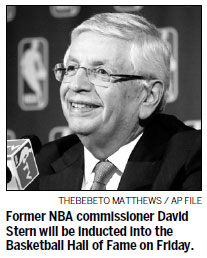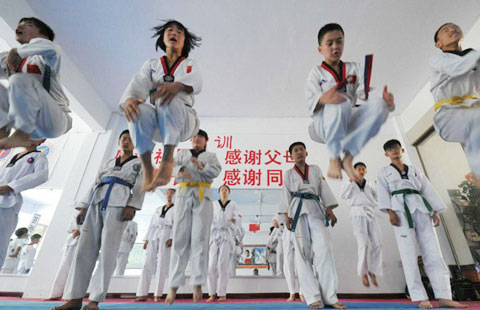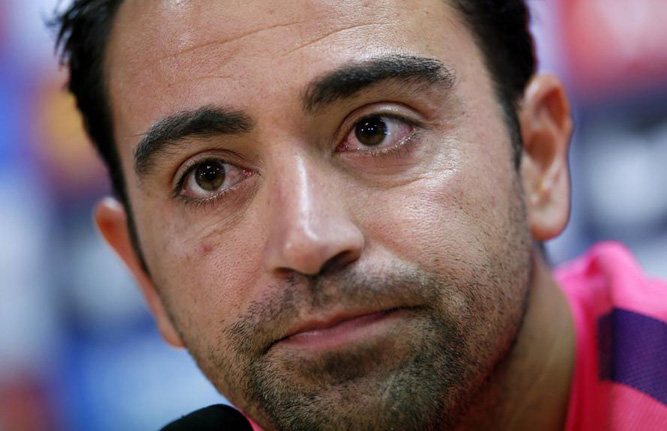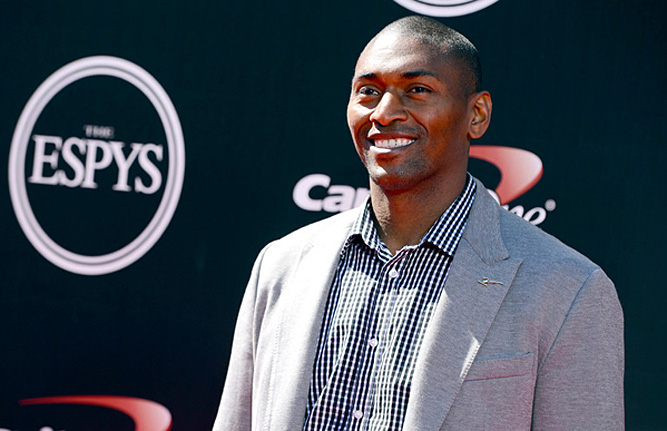Stern fast-tracked to his just reward
By Associated Press in New York (China Daily) Updated: 2014-08-06 07:19Former NBA boss gets early entry into Basketball Hall of Fame
David Stern remembers the days when an NBA staff that numbered about two dozen was just trying to keep some teams in existence long enough to get them on national TV.
Now the former commissioner looks at a league whose 1980 championship series was not broadcast live but now has games televised around the world, whose players average more than $5 million a year in salary as the highest-paid team athletes in sports, and sometimes can't believe what he and his colleagues pulled it off.
"You can't even do justice to everything that everybody has done," Stern said in a phone interview. "All you can do is focus on small chunks of it, but it's great fun to contemplate how the NBA family has pulled together to be at a place where our players are now at the top of the celebrity pyramid.
"Pretty amazing and great."
It helped to have marketable stars like Magic Johnson, Larry Bird and Michael Jordan.
But now comes an honor for the person most responsible for it.
On Friday, Stern will be enshrined in the Naismith Memorial Basketball Hall of Fame, part of a 2014 class that includes former players Alonzo Mourning and Mitch Richmond, along with NCAA championship-winning coaches Nolan Richardson and Gary Williams.
Stern ended his run as commissioner after exactly 30 years on Feb 1 - he won't say retired, because he is still working - and once thought he would wait five years for induction, the same as players.
Officials from the NBA and Hall of Fame persuaded him otherwise, and nobody is arguing he belongs immediately.
"It would be hard to overstate the impact I think David has had on the game of basketball. Admitting that I'm prejudiced toward basketball, David Stern could go down in our era as the greatest commissioner of all-time in all sports," said former NBA coach and ESPN analyst P.J. Carlesimo.
For Stern, it will be the first official basketball function he has attended since leaving the commissioner's office in the hands of Adam Silver. He has remained busy advising some communications companies and technology startups, giving speeches and traveling on behalf of the league.
"It's very nice and very enjoyable," Stern said. "The Hall of Fame is always a kind of reunion in any event so this will be just one more, which is great."
Inducted in the contributor category, Stern is mostly being recognized for his accomplishments as commissioner. But things like free agency and the merger with the ABA came much earlier, when he was working with the league as a lawyer, before he joined the NBA as its general counsel in 1978.
Some of those advances are the ones that occasionally come to mind when he is talking with old co-workers.

"It was a great run," he said. "We had a lot of fun together and the success was as a result of the efforts of an extraordinary number of people."
Stern talks often with Silver and is impressed with the way his successor has handled a number of challenges in his first six months, most notably the Donald Sterling controversy.
Yet it would be hard for Silver - or anyone else - to ever match the career of Stern, who oversaw the addition of seven teams, the creation of the WNBA and NBA Development League, and the growth of revenues to about $5 billion annually.
"You just look at where the game is today and his fingerprints are all over that. My dad tells me stories all the time of how the league used to be - it was great - but nothing compared to what it is now," said Golden State All-Star Stephen Curry, whose father, Dell, started his 16-year career in 1986.
"When it comes to how much presence we have across the globe, playing conditions, how the league has expanded, he's had every part in leading the charge."
Stern calls his induction a group award, citing the efforts of owners, players, referees and league employees, and jokes that "I haven't bought the napkin yet" on which he would write his acceptance speech. But the honor is Stern's and he's excited to accept it.
"To me, it's a very important award, a recognition by your peers in a sport where you spent your adult life working," he said.
"It's at the top of the chart in terms of the way it makes you feel and the recognition of it."








